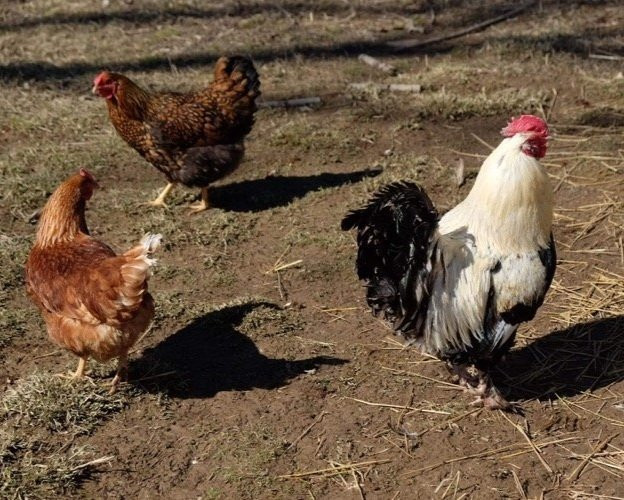Beginning Farmer Moments
posted on
March 25, 2022

“Total beginning farmer moment,” I wrote in a text to my butcher the other day. I discovered that three of my beeves were a few months younger than I thought after talking with the farmer I bought them from. This meant that my butcher date was off by a few months and I was faced with the challenge of rescheduling. Given the limited number of processors in southern Ohio, particularly USDA-inspected processors, it is challenging to get a butcher date on the calendar. My processor requires producers to schedule one year in advance. As a beginning farmer, that means estimating when my beeves will “finish” a full year or more ahead of time. Sometimes it means I’m on the phone scheduling butcher dates for animals I just got. In this case, it means that my next round of beef will be available in the fall — not June as originally expected.
Beginning farmer moments happen all the time. One of my steers has a few patches of missing hair, which is due to a mild lice infestation. As the weather warms, it should fade away. But the first time I saw him with his patchy coat, I got nervous. What does this mean? Is this something to worry about? There are so many unknowns. Will my uncle’s trailer be able to haul three full sized beeves? Four? Should I bring the herd back to the field shelter during cold nights or are they tough enough to be out in the field? What kind of minerals should I provide? What are the nutritional requirements of my herd? How much meat can my customers expect from this new breed I’ve never raised? Typically, I turn to my mentors first — texting a photo or calling them up. Often I open a book like The Art and Science of Grazing by Sarah Flack. Or I take to the internet. As I wrote in my journal, “this work keeps me humble.”
At the same time, I remind myself to be proud. Over the past two years, I’ve achieved three main goals that I wrote in my business plan:
- Raise 8 healthy beeves, finished on grass only
- Create a grazing plan and gain experience with our pastures
- Sell at least 7 beeves direct to consumers (1 raised for family)
I feel lucky to have customers who support my journey as a beginning farmer. You know that mistakes happen. You support my messy process as I learn how to communicate better or set reasonable expectations. You celebrate my successes with me. And you relish in the good food I am providing. For this, I am grateful. Here are some photos of the delicious meals you’ve been enjoying!

Lastly, I’ve been writing a lot lately to grow my small business. I’m currently waiting to hear back from three grants — two of which will allow me to build a handling facility and one of which will support an underground water system. An established farmer recently said that she makes it a goal to write one grant per month. Sometimes I cringe at the reality that small farms are often partially supported by grants. But then I remember the $20 billion dollars in subsidies and bailouts that large scale conventional farmers receive from the federal government. Us small farmers need all the support we can get. In addition to writing grants, these newsletters have been a wonderful outlet for me. A way to connect with all of you who are following my journey. I love hearing back from you after I send a newsletter. And I hope you enjoy reading these as much as I enjoy writing them.
Sometimes I chuckle at how I studied creative writing and then decided to pursue farming. The cover of my farm journal reads “Macalester English Major’s Journal,” a gift for students after they declare their English major. It’s filled with pasture observations, grazing logic, notes on farm insurance, stream-of-conscious writing about this crazy journey, and a poem here or there. Two winters ago I visited a farm in Hillsboro, Ohio called Grassroots Farm and Foods. As the farmer showed me around his pastures and facilities, we talked about breeds and pricing and value-added products. But what stuck with me most is when he told me, “the skill that has served my farm the most…is my ability to write.” Here’s to many more years of writing about beginning farmer moments.

What I’m reading…
Sing, Unburied, Sing by Jesmyn Ward | A novel. In Jesmyn Ward’s first novel since her National Book Award – winning Salvage the Bones, this singular American writer brings the archetypal road novel into rural twenty-first-century America.
What I’m listening to…
Check out myWinter Spotify playlist.
Nicolette Hahn Niman on the Regenerative Agriculture Club podcast | Niman served as senior attorney for Waterkeeper Alliance, running their campaign to reform the concentrated production of livestock and poultry. In recent years, she has gained a national reputation as an advocate for sustainable food production and improved farm-animal welfare.
Trabian Shorters on the On Being podcast | Shorters is a visionary who has seen and named a task that is necessary for all healing and building, for every vision and plan, whether in a family or a world, to flourish. It’s called Asset Framing.



